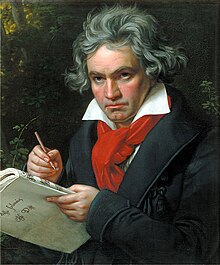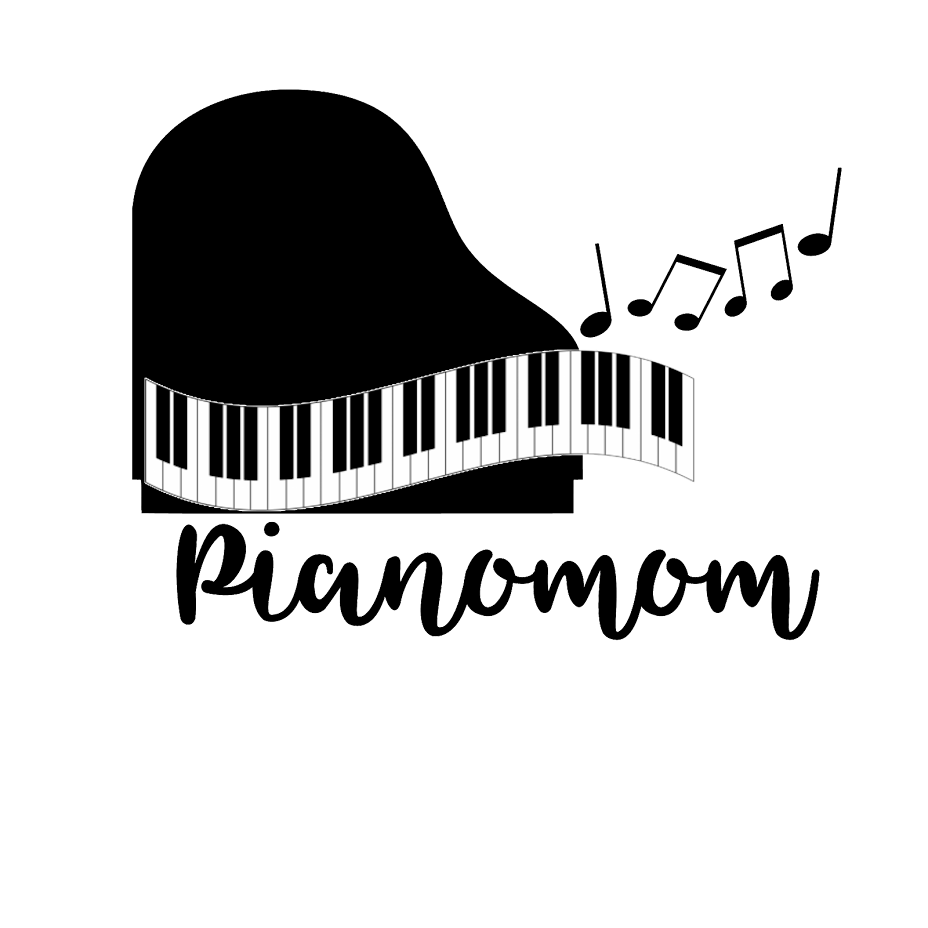Ludwig van Beethoven
| |
|---|---|

Portrait by Joseph Karl Stieler, 1820
| |
| Born | |
| Baptised | 17 December 1770[1] |
| Died | 26 March 1827 (aged 56) |
Works
| List of compositions |
| Signature | |
Ludwig van Beethoven (/ˈlʊdvɪɡ  listen); German: [ˈluːtvɪç fan ˈbeːthoːfn̩] (
listen); German: [ˈluːtvɪç fan ˈbeːthoːfn̩] ( listen); baptised 17 December 1770[1] – 26 March 1827) was a German composer and pianist. A crucial figure in the transition between the Classical and Romantic eras in classical music, he remains one of the most recognised and influential of all composers. His best-known compositions include 9 symphonies; 5 piano concertos; 1 violin concerto; 32 piano sonatas; 16 string quartets; a mass, the Missa solemnis; and an opera, Fidelio. His career as a composer is conventionally divided into early, middle, and late periods; the "early" period is typically seen to last until 1802, the "middle" period from 1802 to 1812, and the "late" period from 1812 to his death in 1827.
listen); baptised 17 December 1770[1] – 26 March 1827) was a German composer and pianist. A crucial figure in the transition between the Classical and Romantic eras in classical music, he remains one of the most recognised and influential of all composers. His best-known compositions include 9 symphonies; 5 piano concertos; 1 violin concerto; 32 piano sonatas; 16 string quartets; a mass, the Missa solemnis; and an opera, Fidelio. His career as a composer is conventionally divided into early, middle, and late periods; the "early" period is typically seen to last until 1802, the "middle" period from 1802 to 1812, and the "late" period from 1812 to his death in 1827.
Beethoven was born in Bonn, then the capital of the Electorate of Cologne and part of the Holy Roman Empire. He displayed his musical talents at an early age and was taught by his father Johann van Beethoven and composer and conductor Christian Gottlob Neefe. At the age of 21 he moved to Vienna, where he began studying composition with Joseph Haydn and gained a reputation as a virtuoso pianist. He lived in Vienna until his death. By his late 20s his hearing began to deteriorate and by the last decade of his life he was almost completely deaf. In 1811 he gave up conducting and performing in public but continued to compose; many of his most admired works come from these last 15 years of his life, commonly known as his

No comments:
Post a Comment